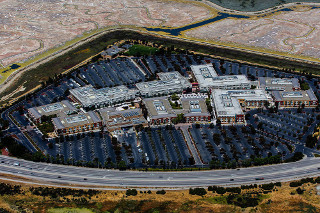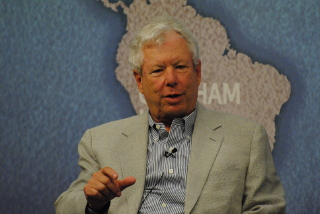[Photo by rawpixel.com on Unsplash]
Dear friend,
Summer vacation time is fast approaching. Families across India will start planning their holidays. Some of them will wait with their browsers open to be the first to get the bookings on sites like Club Mahindra, or wait till 11.30 AM to book railway tickets on the IRCTC site. The number of travellers have grown many fold, but with access to online bookings, booking accommodation and travel have become largely easier. It also throws open a large choice to the informed traveller that was previously curated by travel agencies, who have interest in serving the ‘average customer’ and include ‘must see’ sights in a place, not necessarily the most unique cultural experiences.
Enter Airbnb. With local hosts across the world, it has the largest set of informed travel advisors. In a network, each host acts as an intelligent node providing fantastic insights on local happenings, and tips and tricks that benefit the traveller. This arrangement can be compared with “edge computing” networks popular in cloud technology architectures, where processing is done close to the data. It’s like a self-driving car having over 100 CPUs processing information on the immediate context, while connected to a larger grid that processes larger patterns. In all, this provides a combination of strong local inputs to make the entire network very robust.
Airbnb had built a great network and its growing importance is making the organized hospitality industry wake up and look for ways to both curb it as well as beat it. The story by Indrajit Gupta on Airbnb narrates his personal experience with Airbnb and its ongoing impact on the hospitality industry.
Social media has provided a platform for diverse voices to be heard. It has also brought fringe and sometimes radical voices into the mainstream. Some of these voices get amplified beyond their core group and lodge themselves as central elements of the argument in a debate. When an individual is forced to take a stand on these debates, most often it would be driven by the key influencers’ views and the perception of what is ‘right’. Charles Assisi writes a piece on what one should do in such a situation.
Have a great week ahead!
Best,
CS Swaminathan
On behalf of Team Founding Fuel
Featured Stories
The hotel industry’s big battle with Airbnb

[Photo from airbnb.com]
Airbnb may have changed the game with its online home stay listing model. But the hotel industry isn’t waiting in the sidelines. It is fighting back, says Indrajit Gupta. (Read Time: 5 mins)
Count #MeOut of the debate

[By Gerd Altmann under Creative Commons]
Much of how we live is dictated by narratives amplified by those perceived as influencers. It’s time to shut the noise out and seek our own individual narratives, says Charles Assisi. (Read Time: 8 mins)
What We Are Reading
Silicon Valley’s tax-avoiding, job-killing, soul-sucking machine
Two great pieces were published in the last two weeks on the subtle ways in which technology is tearing the fabric of modern society. The first one is by Scott Galloway, professor of marketing at the NYU Stern school of Business. His thesis is on the reasons why the big tech companies need to be broken up. Readers might be reminded of his book The Four, where he compares Amazon, Facebook, Alphabet and Apple on their business strategies.
Inside the two years that shook Facebook—and the world
The story by Nicolas Thompson and Fred Vogelstein in Wired, reported on the last two years of Facebook and the soul searching going on within the platform in general, and Mark Zuckerberg in particular. Classic deep reporting, absolutely a must read.
From Our Archives
Disquiet in Paradise: Why the internet may be turning into Fort Knox

[Photograph of Facebook Campus by Austin McKinley under Creative Commons]
Three recent books lay bare claims that the internet is a democratizing and empowering force in society. Instead, new internet czars have concentrated power in their own hands, made us dumber—and spawned a more divisive society, says Arun Maira.
Nudge versus Richard Thaler

[By Chatham House, London via Wikimedia Commons]
It looks inevitable technology companies will outrun the theories of the Nobel Prize winner in Economics. And that is a frightening thought, says NS Ramnath.


